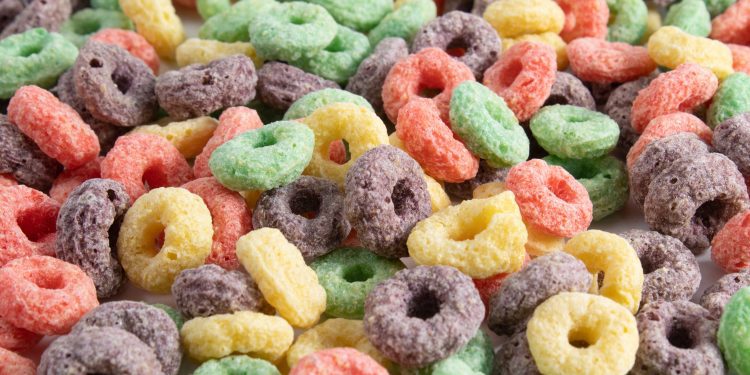Research has shown that diets high in ultraprocessed foods are linked to more than 30 health conditions, according to an umbrella review of meta-analyses that was published in The BMJ. Meanwhile, more exposure to ultraprocessed foods was associated with a higher risk of dying from any cause. There were also strong ties with higher consumption and cardiovascular disease-related deaths, mental health disorders and type 2 diabetes.
It’s when whole foods are altered
“Foods that are ultraprocessed are altered from their natural forms. This can be done to make foods appear a certain way or preserve foods for longer,” said Dr. Sachdev. “Compare a carton of eggs that you purchase with a frozen egg patty. Even though both of these items contain eggs, these are very different foods that have gone through very different journeys to get to the store shelves.”
They’re cheap, convenient and tasty
“Ultraprocessed foods are clever manipulations of mostly unhealthy ingredients titrated to appeal to common cravings—tasty by design, but it’s all a trick,” said Dr. Devries. “For example, our bodies are naturally drawn by evolution to the sweetness of fruit because of its associated nutritional value.”
That’s why “ultraprocessed foods draw on the craving for sweetness but are largely devoid of the nutritional value historically associated with that taste,” he explained. “Compounding the problem with ultraprocessed foods are the ingredients added to enhance shelf life, including unhealthy fats and preservative chemicals that may have negative health outcomes.”
As a result, “ultraprocessed foods are better at preserving shelf life than human life,” Dr. Devries emphasized.
Processed is better than ultraprocessed
“Processed foods are more nutrient-dense than ultraprocessed and usually are less refined and have few or no additives,” said Dr. Devries, noting “they are generally healthier than their ultraprocessed counterparts.
“Examples of processed foods are whole wheat bread, extra-virgin olive oil and tofu,” he added.
Ultraprocessing leads to health problems
“Health consequences of ultraprocessed foods are dire. A large study conducted over 19 years showed a 31% higher mortality for the highest versus lowest consumers of ultraprocessed foods,” Dr. Devries explained. “The concerns include recent documentation of an increased risk of type 2 diabetes, cardiovascular disease and dementia.”
“These alarming statistics go a long way to explain the record-breaking prevalence of obesity, type 2 diabetes, and all of the adverse health consequences that follow,” he added. “Ultraprocessed foods are the perfect storm to promote overconsumption and weight gain: They are laboratory engineered to maximize appeal, are calorie-dense, and have little or no fiber or other healthful nutrients.”
“The problems are even more acute for individuals who are food insecure, as constraints of limited access and affordability of nutritious food lead to especially high consumption of ultraprocessed foods,” Dr. Devries said.
Calories are not all created equal
“High amounts of added fat and sugar added to ultraprocessed creations make them considerably more calorie-dense than most whole foods,” said Dr. Devries.
“It is important to highlight that calories are not all created equal,” said Dr. Sachdev. “So the same calories that you might get from eating an apple, for example, are very different than the calories you might get from eating an apple fruit bar.
“These might be equivalent in number, but what ultra-processed calories represent and the nutrition that they provide your body is different,” she added.
Read the full article here
By Sara Berg / Courtesy American Medical Association












